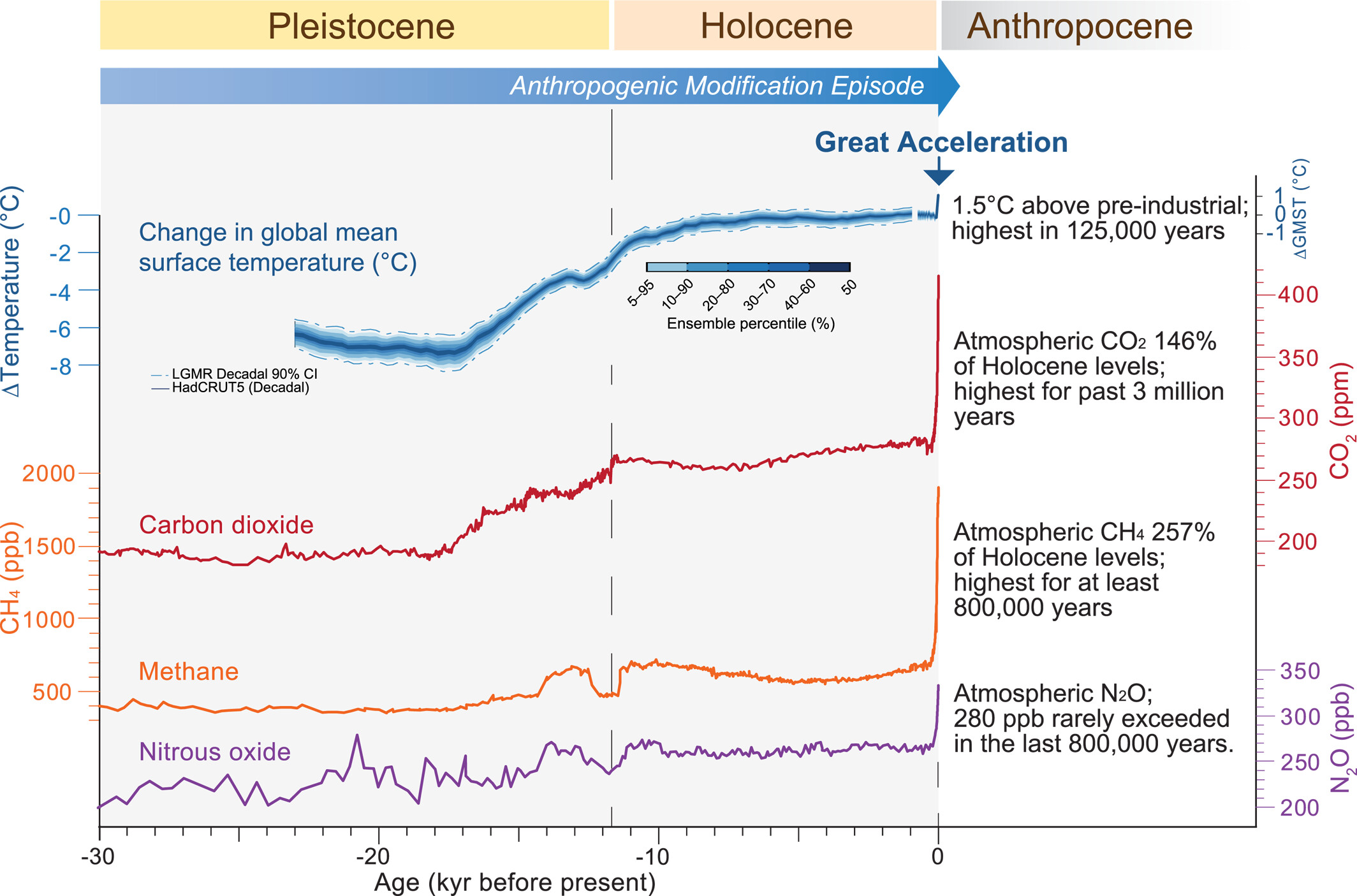
A graph depicting the changing temperature and gases in the atmosphere over the course of the last 30,000 years.
The Anthropocene and the commentaries over the last year
Over the last year, several commentaries were published in AGU journals, including one this month, over the debate on whether the Anthropocene should be considered an official epoch. The Anthropocene is an unofficial geologic time period, like the Holocene and Pleistocene, characterized by human activity having a substantial impact on the planet. In 2024, the International Union of Geological Sciences debated whether humanity’s impact on the planet has been profound enough to define a new geological epoch. While the governing committee declined to issue its stamp of approval to usher in the new age, the debate around the Anthropocene continues. Here’s how the arguments break down:
In a commentary published in July of 2024, researchers argued that the timescale of the Anthropocene is not what matters. They argued against an epoch, which denotes and requires a time frame, and instead that it should be viewed as the Anthropocene Event. This would allow researchers to ignore the time frame and instead focus on the Anthropocene as a series of human actions that have had a substantial impact on Earth. [Earth’s Future commentary]
Commentary published in March argued that the Anthropocene epoch, which the authors argue started 72 years ago, was essential to conveying the full gravity of humanity’s impacts on the planet. In their opinion, a new epoch would underscore the seriousness of the situation and that the ongoing changes to Earth’s atmosphere and oceans are not easily changeable nor reversible. [AGU Advances commentary]
In a similar vein, just this month another researcher published a commentary arguing that the Anthropocene as an epoch is important for highlighting all the issues accompanying climate change. The researcher goes on to say that a new epoch would help unite humanity under a single term and, therefore, a singular goal. They believe this common goal would counter nationalist impulses and allow researchers and communities to work better together to fight climate change. [Earth’s Future commentary]
Featured Research
Southern Ocean could see increased temperatures and ice melting if AMOC slows
The Southern Ocean would see increasing in temperatures and more ice melt over the course of several decades if the Atlantic Meridional Overturning Circulation, a system of ocean currents in the Atlantic Ocean, weakens. Researchers highlighted that the weakening current on the Southern Ocean would be smaller than the direct impacts projected from global greenhouse gas emissions. [JGR Oceans study]
Scientists face limitations accessing seafloor information
Recent reductions in U.S. oceanographic assets are limiting scientists’ ability to access vital research materials in the ocean. [Editor’s highlight] [AGU Advances commentary]
How plants respond to scattered sunlight
A new study investigates how diffuse light affects the water cycle and carbon uptake across forest, grassland, shrub, and agricultural areas. [Eos Research Spotlight] [JGR Biogeosciences study]
The power of naming space weather events
Mother’s Day Storm? Why not! Bastille Day Storm? Mais oui! Space scientists make the case for a standardized naming convention for geomagnetic storms: to increase public awareness and preparedness. [Editor’s highlight] [Perspectives of Earth and Space Scientists commentary]